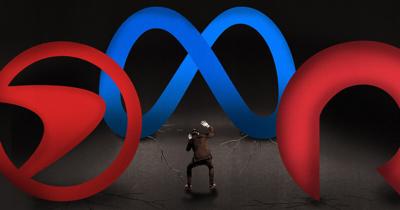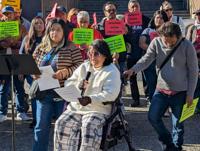Since the Trump administration moved to dismantle the Consumer Financial Protection Bureau last month, the bureau has dropped nine lawsuits that it had brought on behalf of consumers.
The actions effectively freed major financial firms like Capital One and the mortgage giant Rocket Homes from the threat of consequences for their alleged significant wrongdoing, shocking consumer advocates and raising questions about the future of America’s consumer watchdog. For their part, when the cases were dropped, the companies lauded the decisions, with a bank spokesperson welcoming the dismissal of the case, “which we strongly disputed,” and Rocket Homes calling the suit an “empty claim.”
But the administration’s new hands-off approach to enforcement at the CFPB extends far beyond those public lawsuits. Behind the scenes, dozens of ongoing investigations into alleged corporate malfeasance are now frozen at the agency, potentially denying accountability and financial relief for untold numbers of consumers, a ProPublica investigation has found.
Under a stop-work order issued by the agency’s new leaders, CFPB investigators have been unable to press forward on probes into companies whose products and services are used by tens of millions of Americans, including Carvana, the online used-car retailer; Mr. Cooper, one of the country’s largest mortgage servicers; and CareCredit, a leader in medical credit cards, according to multiple people with knowledge of the matters.
The ongoing inquiries, the existence of which ProPublica is revealing for the first time, were at various stages of development, with subpoenas issued in most of them and companies submitting records in response. And while the nature of the alleged wrongdoing wasn’t clear in all cases, people familiar with the inquiries said several probes tracked closely with problems featured in the agency’s own recent public reports.
Last fall, for example, the CFPB examined automobile finance companies and found numerous problems with industry practices, including failing “to timely provide consumers with title after loan payoff,” which can result in drivers losing their cars after traffic stops and accidents. That issue is one of several at play in probes of Carvana and VW Credit Inc., said the people, who like others interviewed by ProPublica spoke on condition of anonymity to discuss sensitive bureau actions.
Carvana didn’t respond to multiple emails seeking comment and a spokesperson didn’t return a voicemail. Spokespeople for VW Credit haven’t responded to emails seeking comment and a spokesperson didn’t return a phone call.
The investigatory pullback worries consumer advocates who fear the agency is now poised to effectively walk away from years of work that undergirds civil actions — a decision that they say will ultimately neuter the government’s ability to enforce America’s consumer financial protection laws while signaling to companies that all business practices, no matter how pernicious, are fair game. The latest agency data shows that it takes an average of 35 months from opening an investigation to either filing a lawsuit or settling the case.
“What we’re seeing is a wholesale abandonment of consumer protection, leaving people to fend for themselves when credit card companies, banks, payday lenders and payment apps violate the law,” said Lauren Saunders, the associate director of the National Consumer Law Center.
Indeed, the freeze in enforcement has stalled probes into companies that had previously agreed to legal payouts to settle allegations that they’d harmed consumers, the people said. At least two such companies were under investigation for allegedly backsliding into similar problematic behavior, the people said, even after those businesses had struck deals: data furnisher Afni Inc., which in 2020 agreed to pay a $500,000 civil penalty and more accurately report information to credit reporting agencies, and the home improvement fintech company GreenSky, which in 2021 paid a $2.5 million civil penalty and agreed to stop making fraudulent loans.
Afni didn’t respond to an email seeking comment and a spokesperson didn’t return a voicemail. GreenSky declined to comment.











(0) comments
Welcome to the discussion.
Log In
Keep it Clean. Please avoid obscene, vulgar, lewd, racist or sexually-oriented language.
PLEASE TURN OFF YOUR CAPS LOCK.
Don't Threaten. Threats of harming another person will not be tolerated.
Be Truthful. Don't knowingly lie about anyone or anything.
Be Nice. No racism, sexism or any sort of -ism that is degrading to another person.
Be Proactive. Use the 'Report' link on each comment to let us know of abusive posts.
Share with Us. We'd love to hear eyewitness accounts, the history behind an article.